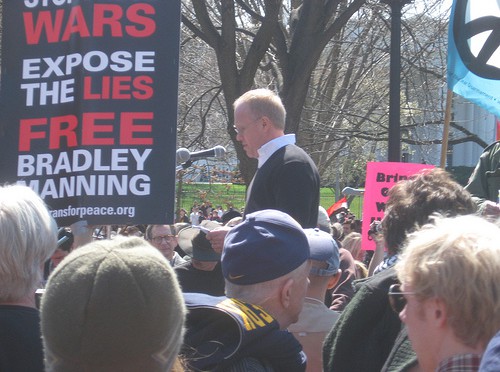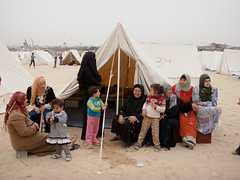Guy Bechor, while exemplifying the legitimate fears of Israelis and Jews, writes a confused mess, seemingly sent from some mythical world invented by 20th-century European fascists.
Deep breaths. I just finished reading an article on Ynet, by Guy Bechor, titled “A Middle Eastern lesson“; it was shared by Peace Now on Facebook to “give insight to Israeli fears”. That it does. It also gives insight into a romantic populist world-view, forged of myth and nationalism, in which countries are populated not by people, but by peoples (German: Völker), embodied by their leaders (German: Führer). And while writing this imaginative nonsense, he manages to call those who would strive for peace “gullible”. Deep breaths.
But let’s start at the beginning.
Fable
Bechor begins with a fable of Aesop’s… Something about wolves and sheep and dogs. This is a good way to start, as it puts the reader in exactly the mindset needed to believe Bechor’s hysteria. There are three kinds of players in Bechor’s world: the wolves, who are really bad, the sheep, who are just helpless, and the dogs, who are not wolves and no simple sheep, but can at least defend themselves.
(BTW, is this fable the original version of the allegory in Team America, where it’s “assholes”, “pussies” and “dicks”, respectively, in exactly those roles?)
Genius
Having set the stage, we now go on to discuss the actual complex realities of one of the most politically difficult regions currently to be found on our planet. Except there are no complex realities, since Bechor is so much more intelligent than us morons.
Allow the genius to teach us the ways of the Middle East: it boils down to Arabs being brutal and violent, and Jews and Christians having to create heavily-armed nation-states to defend themselves. I kid you not, ladies and gentlemen! At last, Bechor has revealed to us the simplicity of the Middle East, and there it is, in one sentence! Thank me later.
Facts, of course, are irrelevant. In Bechor’s world, things are simpler, and more fantastic. In Bechor’s world, Christians are being “butchered” in post-revolution Tunisia and Egypt (citation needed). In Bechor’s world, what’s happening in Syria is about Arabs killing minorities. There is no context, there are no politics to speak of, just a people being evil.
Sin
What Bechor does here is, to me, an immense sin. Like certain Führers of times gone by, Bechor sees the world as composed of peoples, acting as united wholes. There are Arabs, there are Christians, there are Jews. Wolves, sheep, and dogs (his words, not mine). Never mind that someone can be an Arab and Christian at the same time, that kind of complexity is incompatible with this simple, simple world. It is divided into nations, these nations are in some kind of eternal struggle, and, hence, they need armies. End of story.
What’s worse, when it comes down to choosing who represents these nations, again Bechor sides with evil. It is the Assads and the Mubaraks and the Ghaddafis and the Ben Alis, and their paid thugs, who show Bechor’s “true Middle East” — not the masses of people, oppressed by those asshats for decades, who finally take to the streets, put their lives on the line, and demand their freedom. Not the soldiers and officers who defect or desert when ordered to fire on civilians. No, the Führer is the nation, and the people must follow.
Excuse me while I throw up.
Morality
But if all that weren’t enough, of course Bechor must also paint the Left as a dangerous enemy. ((Fun fact: Dachau, the first German concentration camp, was built just weeks after Hitler took power, and its first inmates were German lefties, imprisoned for being in the opposition.))
[…] outside elements – and to my regret domestic elements as well – try to weaken the IDF via needless commissions of inquiry, incitement and criticism, propaganda, and an effort to taint the army’s moral prestige.
I don’t know, Guy, don’t you think the army’s moral prestige might also be tainted by soldiers trashing houses, systematically humiliating civilians and prisoners as a kind of sport then (sometimes) posting photos on Facebook, or firing white phosphorous on residential neighborhoods? Don’t you think that being put in the position of policing an occupied, largely civilian population, with mainly just combat training as preparation, might be having some ill effects on the army’s morality as well? Don’t you think commissions of inquiry might help make sure soldiers stick to the IDF’s moral code, and incidentally increase its moral prestige by proving it can take scrutiny? And most of all, is a reputation for morality really more important than actual moral behavior?
I don’t know, man.
Truth
The Middle East is a difficult place to be. Bechor is right in that the dictators’ response to the Arab Spring is revealing. It reveals the dictators’ true colors to anyone who had a doubt.
Yet the revolutions themselves are revealing a reality that should have been clear, but is clearly lost on Bechor and his ilk: the Führer ist not the Volk. The people under dictatorship are not represented by their so-called “leaders” — they are their victims.
Rivers of blood flow through the Middle East, as usual. This is a difficult time, and even more difficult is to guess what comes next.
But the basic and obvious reality — one which I’ve incidentally heard from at least two Arabs I’ve spoken with here in Germany — is that peace is in everyone’s best interest. Most Israelis know it, on some level. Most Arabs know it on some level. And finally, we may just see some governments in the Middle East which strive for everyone’s best interest, and not just the interests of the dictators and the elites behind them.











